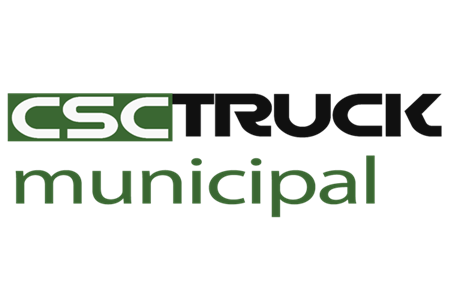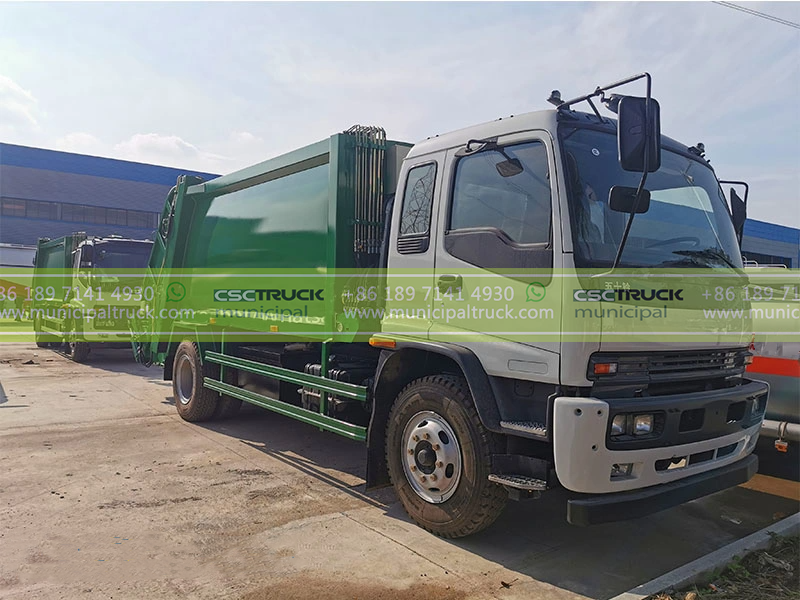Addressing Tourism-Driven Sanitation Pressures in UNESCO Zones
Amid record-breaking visitor numbers straining Panama City’s colonial-era infrastructure, municipal authorities have launched a targeted sanitation overhaul with the deployment of 22 advanced side loader garbage trucks through a $6.1 million partnership between CSCTRUCK Municipal and Isthmus Environmental Solutions, Panama’s leading waste management conglomerate. This strategic intervention targets chronic overflow incidents in Casco Viejo and San Felipe—UNESCO World Heritage districts where tourism generates 3.2 tons of daily waste per city block during peak season, overwhelming conventional collection systems designed for residential volumes.
The CSCTRUCK SL-400H fleet, operational ahead of the December tourism surge, features compact dimensions specifically engineered for Panama’s 17th-century urban fabric: 2.3-meter widths enabling navigation through alleyways under 3 meters wide, while automated bin-lifting mechanisms eliminate manual handling near historic façades. “This isn’t merely waste collection—it’s cultural preservation,” emphasized Mayor José Blandón during the commissioning ceremony, noting that the trucks’ 98 dB noise reduction (compared to previous models) aligns with strict acoustic regulations protecting heritage zones. Projections indicate a 50% reduction in street litter persistence and 75% faster response to overflow alerts across the 2.5 km² historic core.
Engineering Precision for Fragile Urban Ecosystems
Adaptive Collection Technology
The trucks’ proprietary Heritage-Safe Collection System addresses Panama’s unique challenges through three integrated innovations:
- Robotic arm stabilizers with millimeter-precision lid sensors preventing debris spillage on cobblestone streets
- Multi-compartment compaction segregating organic waste (60% of tourism volume) from recyclables without secondary vehicles
- Low-emission hydraulic lifts exerting 40% less ground pressure than standard loaders to preserve underground archaeology
This configuration enables single-pass collection of 4.8 m³ waste loads—tripling the efficiency of previous rear-loading units—while complying with the Municipal Heritage Authority’s ban on heavy vehicles exceeding 16 tons in protected areas. Environmental testing confirms the system captures 99.3% of microplastic particles dislodged during compaction, critical for preventing oceanic contamination in the adjacent Bay of Panama.
Intelligent Route Optimization
Integrated with Panama’s Smart Canal urban monitoring network, the fleet utilizes AI-driven dynamic routing that processes real-time data from 1,200 municipal sensors tracking pedestrian density, bin fill levels, and cruise ship disembarkation schedules. “Algorithms reroute trucks within 90 seconds of detecting overflow risks,” explained CSCTRUCK’s Latin America Director Camila Ortiz, highlighting how the system reduced unnecessary heritage zone transits by 62% during trials. Crew tablets display augmented reality overlays identifying structurally vulnerable buildings, automatically disabling compaction near fragile Baroque churches.
Sustainable Integration and Regional Scalability
The CSCTRUCK-Isthmus alliance extends beyond equipment delivery, establishing Central America’s first tourism waste training academy at the rehabilitated Amador Naval Station. Here, 85 sanitation technicians master scenario-based protocols through virtual reality simulations of cruise terminal surges and festival cleanup operations. Crucially, the contract includes localized manufacturing provisions: Isthmus will assemble future hook loader garbage truck variants from 2026 using CSCTRUCK-supplied chassis, while developing hybrid rear loader garbage truck conversions for Panama’s mountainous interior towns.
Operational synergies already demonstrate cross-sector value:
- Modular waste pod integration: Detachable containers swapped at transit hubs for continuous historic district coverage
- Marine conservation alignment: Sealed waste transfer preventing wind-blown plastics reaching UNESCO mangrove reserves
- Tourism industry partnerships: Cruise lines fund extended collections during ship-in-port days via volumetric tariffs
“These trucks are the cornerstone of our Zero Waste Heritage initiative,” declared Isthmus CEO Roberto Chen, noting that the modular design allows reconfiguration for Panama Canal Authority specifications. With Phase 2 planning underway for Colón and Bocas del Toro deployments—and Colombia’s Cartagena expressing formal interest—Panama’s model of blending tourism economics with ecological stewardship sets new benchmarks for UNESCO cities globally.
This initiative supports Panama’s 2025–2035 Sustainable Tourism Charter, targeting 100% waste processing autonomy in World Heritage zones. CSCTRUCK Municipal confirms identical heritage-specification fleets will deploy in Quito’s Historic Center and Old Havana by Q1 2026.







